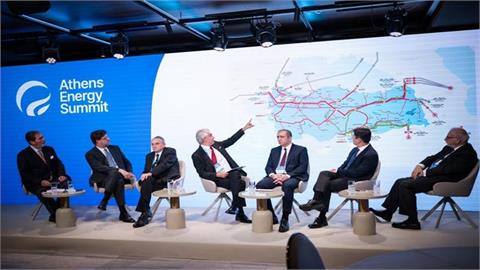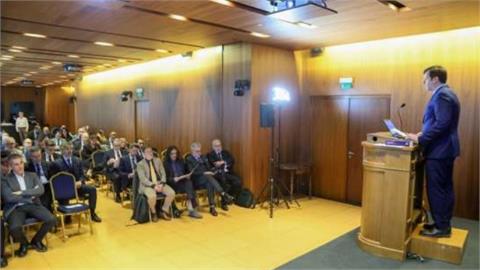In its latest News Analysis posted yesterday, and freely accessible, IENE raises the issue of whether the EU is capable of ending its overgrown dependence on Russian energy imports. Over the last 50 years or so the EU and Europe in general have become over dependent on Russian oil, gas and coal imports.
In its latest News Analysis posted yesterday, and freely accessible, IENE raises the issue of whether the EU is capable of ending its overgrown dependence on Russian energy imports. Over the last 50 years or so the EU and Europe in general have become over dependent on Russian oil, gas and coal imports. On account of price, and as Russian mineral resources have been generally available at significantly discounted prices -at least they used to be several years ago when the Soviet Union was trying to enter western markets- European energy companies over time have become accustomed to Russian energy imports. There have also been many occasions where jointly with their European counterparts Russian energy companies built the necessary infrastructure whether in the form of pipelines, gas storage facilities or refineries. The net result being an over reliance on Russian energy which, following the war in Ukraine and the sanctions imposed on Russian companies, has clearly become a major handicap.
As the war in Ukraine has been escalating following the Russian invasion of February 24, with no signs of an early ending, the European Union is getting more and more concerned with its huge reliance on Russian oil and gas imports. As already reported and analysed by the IENE, almost 40% in average of European gas imports come from Russia and hence a decoupling from such high exposure is now becoming top priority for Brussels planners but also for most national governments. In this context, the EU has laid out some specific plans aimed at reducing fossil fuel imports from Russia.
More specifically, on March 8, 2022, the European Commission proposed an outline of a plan, known as REPowerEU, to make Europe independent from Russian fossil fuels well before 2030, starting with gas, in light of Russia’s invasion of Ukraine. This plan also outlines a series of measures to respond to rising energy prices in Europe and to replenish gas stocks for next winter. Europe has been facing increased energy prices for several months, but now uncertainty on supply is exacerbating the problem. REPowerEU will seek to diversify gas supplies, speed up the roll-out of renewable gases and replace gas in heating and power generation. It is estimated that this can reduce EU demand for Russian gas by two thirds before the end of the year.
This latest plan is important as it expresses the position of the European Commission, but the question remains as to how its goals are to be implemented over such a short period of time, as by the end of 2022, or longer by 2030? This News Analysis attempts to focus on the details of REPowerEU and through a series of arguments to present the challenges and disadvantages that this plan must deal with.




